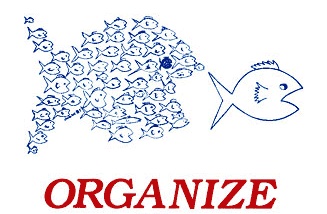The dramatic reversal in the Democrat’s fortunes since November 2008 and their impending defeat in Tuesday’s mid-term elections raises the question of how things went so wrong for them in such as short time. Needless to say, the situation they inherited did not help: a major recession with near record unemployment, bankruptcies and home foreclosures, two wars of occupation, immigration concerns and a deeply polarised electorate. Even so, President Obama had a wave of popular support, the Democrats gained control of Congress, there was a mood for change in the country and the world was sympathetic to the incoming administration. Inherited obstacles notwithstanding, the scene was set for a major shift in direction under consolidated Democratic leadership for years to come.
Instead,  the Democrats have foundered while the GOP-Conservative opposition has rebounded and mounted a formidable challenge that threatens to undermine any hope for significant alterations in US policy direction. The immediate reasons for this Republican resurgence and the pallorous state of the Democratic Party (and the President) in the run-up to the midterms has more to do with the latter’s strategic and tactical errors rather than the former’s platform for governance. The Democrat errors can be enumerated, and will be summarised here.
The first strategic error was to believe that playing a centrist game was going to work. That may have succeeded in years gone by, but with an Republican opposition operating off a script of obstructionism, fear-mongering, personal denigration, xenophobia and cultivation of populist ignorance, it was never going to prosper in today’s political climate. Appeasing a disloyal opposition simply encourages it to become more vicious in its attacks, particularly when it has a partisan media working on its side. Thus the “Kenyan-Muslim-Socialist” and “Pelosi-Reid deficit spender” memes that have reverberated from the moment the Obama administration took office and the Democrats gained control of Congress.
What the President and his party should have done is staked out an explicitly Liberal-Left policy agenda that starkly differentiated their (relatively, given that it is in the US) progressive and pro-active  approaches to the nation’s woes. They were going to be vilified anyway, so the stark differentiation of their platform from the reactionary and failed GOP approach would have clarified the lines of debate in ways that the public could clearly understand, both in terms of where the fault lay with regards to the economic woes of the country as well as in the solution set being offered as an alternative. After all, the US has not had anything remotely close to a “progressive ” policy agenda (and I say this phrase advisedly simply because what passes for progressive in the US is centrist is most other liberal democracies) since the early days of Jimmy Carter’s presidency, and the inherited economic and political conditions were ripe for a bold move away from the failed policies of the Bush 43 administration. That would have been a real agenda for change.
Since the Democrats did not do so, they failed on a second strategic level: they failed to impose the terms of the policy debate and ceded that space to the Fox and talkback-led conservative opposition. Since the latter had little to offer other than invective, this allowed them to turn to the usual diversionary wedge issues in order to gain political traction: ethnic conflict, cultural mores, “socialism,” and taxation. Whatever the administration’s accomplishments (and there have been a number, including nuclear arms reductions with the Russians and the gradual military exit from Iraq), these have been lost amid the din of conservative outrage about sins more imaginary than real.
Thus the Democrats found themselves on the defensive even as they tabled their policy agenda. Since those who dictate the terms of debate are those who win the debate, that meant that they were fighting a losing battle from the get-go.
They compounded these strategic errors at a tactical level. President Obama granted leadership of the legislative agenda to his Congressional counterparts. That was a mistake. The November 2008 elections were about him, not the Congressional leadership. The Democratic take-over of both Congressional majorities was more a result of coat-tailing on the President’s popularity than on the intrinsic merits of Democratic candidates themselves. Obama had a mandate, and he had the political capital surplus to spend; Congress did not, and in fact remained one of the country’s most detested institutions even after his election. Thus, by delegating leadership on the legislative agenda to the likes of Pelosi and Reid (which he likely did in deference to his former senior colleagues), President Obama ceded his bully pulpit to the circus on the Hill. That gave the impression that he was weak and insecure, which in turn gave the Republicans space to go on the attack against “entrenched interests” and all the other failures of the DC-based “liberal elite.”
The tactical error was compounded by the choice of battles to commence with. Instead of focusing on mortgage relief and rescue for desperate homeowners, serious financial market reform, education opportunity enhancement, immigration policy adjustment and re-orientation of US military commitments abroad (among any number of policy areas), the President and Congress chose to address health care first. Although it is obviously needed given the deficiencies of the US private health care system, it was simply too contentious and big a problem to tackle at the onset given the image of Presidential lack of experience and his conciliatory nature. Democratic strategists may have believed that they had to spend the President’s political capital early so as to ensure its passage, but in fact taking that policy issue as the first order of business under Congressional leadership direction hamstrung the Democrats even if they succeeded in passing a watered-down version of health care reform that provides some level of universal benefit to all citizens.
Put another way: the last thing the American public wanted to hear at a time of deep recession and after the financial bail-outs of the banking and automobile industries was that more public money would be spent of health care and that future taxes would reflect that increased level of deficit spending. Compared to the billion dollar figures being bandied about with regard to health care reform, Obama’s “middle class tax cut” (for those earning US$250,000 or less) and tax rebate (amounting to $500 per household) were seen as negligible drops in the bucket and meaningless political sop thrown for opportunistic purposes. For those who had spent a lifetime of paying for private insurance, it also seemed be a case of the indolent, irresponsible and unmotivated being gifted, at taxpayer expense, benefits that they did not deserve. Once the Republican-conservative spin machine got a hold of the issue, the spectre of “socialised” medicine replete with “death panels,” lack of individual choice, limits on care, endless delays and assorted other deficiencies soon dominated public discourse regardless of Democrat attempts to clarify the issue.
The combination of these four factors–failure to head to the Left and carve out a distinct position, ceding the terms of political debate to the opposition, allowing Congress to set the legislative agenda and choosing to reform health care as the first priority–set the stage for the political train wreck that is the Democrat’s midterm election campaign. To that can be added a failure to realise early that Republican operatives are using the Tea Party movement as a Trojan Horse with which to re-gain political momentum and a return to power. Similarly, the White House chose to ignore rather than frontally confront the “Kenyan-Muslim-Socialist” allegations until they were well entrenched in the public consciousness–a full twenty percent of the US electorate now believe that the President is one, the other, or all three. It is too late to bolt the door against such attacks.
Some argue that the Democrats are playing to lose because the inevitable gridlock that will follow from Tuesday’s vote will allow the President to paint the Republicans as do-nothing obstructionists without a real agenda for solving national problems. That could be true if the Republicans do not win the Senate as well as the House, but if they win both branches then they will have the ability to impose a legislative agenda that among other things will repeal the health care reforms and other aspects of the Democrat’s agenda that have been accomplished so far. That puts the ball in the President’s court because it forces him to exercise his veto in order to salvage his original program, which in turn casts him as the obstructionist during the two years leading into the 2012 presidential election.
The bottom line is that although the Republican-conservative opposition play extremely dirty, the Democrats have no one but themselves to blame for this impending election fiasco. If Clausewitz is correct in his assertion that war is politics by other means, than the reverse is equally true: politics is war by other means. The goal is to win, pure and simple, and that means that if the opponent is going to play dirty then the governing party must understand what it is up against and counter it decisively without equivocating about the niceties involved. Rather than understand this very simple logic, the Democrats returned to form, tried to play nicely to the center, tried to respect the separation of powers mythos that is ingrained in US political folklore, tried to be civil in the face of a disloyal opposition and tried to embark on big policy reforms before the the President and his new Congressional counterparts had fully moved into their offices. For their efforts they are going to get hammered on Tuesday.




